마약, 무기밀매, 테러로 김일성왕조에 충성했던 북한고위급 탈북자 김국송의 고백. 평생을 헛살아온 그의 인생고백 이야기를 어떻게 받아 들여야 할까? 북괴 Regime의 목적은 그렇게 해서 이루어졌었나? 지난 70여년동안 더 가난해 졌고, 더 지구촌으로 부터 왕따를 당했고, 맏형노릇해 주는 남한에 대한 비난과 폭력만 일삼아 왔었지만, 그래도 같은 동족이기에 참고 참고 또 참아 오늘에 이르렀지만, 반성은 커녕 오늘도 아무 쓸모도 없는 핵무기와 대륙간 탄도 미사일 쌓아 두기에 혈안인 북한, 망나니 쪼무래기를 이제는 처치해야 할 때가 된것으로, 그렇게 해서 지난 70여년동안 공포와 굶주림에 허덕였떤, 우리 북한 동포들에게도 "자유"의 참뜻을 알려주고, 그속에서 살게 해주어야할 의무가 우리 남한 국민들에게도 일말의 책임이 있음을 통감해야할 때가 된것 같다.
오늘 영국의 BBC가 이러한 북한의 내부를 폭로하는 장문의 기사를 보도한것, 그대로 흘려 버리기에는, 우리 모두가 다시한번 이해하고 위에서 언급한것처럼, 위정자를 중심으로 우리 모두가 합심하여 계속 이러한 악마짖을 해대는 북괴Regime에 이제는 철퇴를 가해야할 때가 익었다고 본다.
김국송과 인터뷰를 하기위한 대화를 하기위해 몇주간의 시간을 보내야만 했다. 그는 아직도 누군가는 우리의 대화를 비밀리에 도청하고 있지 않을까라는 망상에서 헤어나지 못하고 있었다. 그는 검은색안경을 쓰고 카메라앞에 섰으며, 우리 Crew들은 정말로 그의 진짜 이름이 무엇일까를 알아내기위한 목적이 이번 대담의 주제가 될것임을 기대하고 있었다.
김은 지난 30년간 북괴의 고위급 스파이 에이전시로 충실히 근무해온자다. 이러한 스파이 에이전시는 북한 최고 통치자의 두뇌역활과 그리고 눈과 귀가되여 살아가는 존재들인데 일종의 김정은에게는 부속품같은 존재들이었다.
그의 주장에 따르면 철저한 비밀을 지키며, 필요시 그들의 적이된다고 생각되는 자들은 암살단을 보내 처치했고, "혁명"을 완수하기위한 자금을 조달하기위해 불법마약밀매를 일삼았었다고 했다.
김성국은 북괴의 예비역 대령으로 북괴의 가려진실태를 폭로하기위해 BBC앞에 선것이다. 이렇게 북괴군의 고위급 장교가 전세계를 커버하는 언론사와 대담을 하는것은 처음이었다. 김성국은 특종인터뷰에서 자신은 "빨갱이중의 빨갱이"였었고, 북한공산당의 충성스러운 충견역활을 했었던자다. 그러나 그는 그렇게 충성을 다해도 북한에서는 그의 안전이보장되지 않는다는것을 깨닫게 된다. 그래서 그는 2014년에 북한을 탈출한것이다. 탈출후 서울에 살면서, 국정원 직원으로 근무중이다.
그는 북한 김정은 Regime에 대해 폭로하기를, 그들은 그들이 필요한 돈을 확보하기위해 어떤 일이든 마다하지 않고 하는데, 마약밀매 그리고 중동과 아프리카에 무기밀매를 서슴치 않고 있다.
그는 또 설명하기를 김정은 Regime이 남한을 공격하기위한 계획을 평양에서 비밀리에 만드는 프로젝트에 대해서도 설명해 주었다. 그뿐만이 아니고 비밀리에 전세계를 상대로 사이버 네트웍과 각나라의 스파이 비밀을 공격하여 목적을 이루고 있다고 한다.
BBC는 그의 폭로를 객관적으로 확인할 길은 없다. 그러나 우리는 그의 정체에 대해서 확인할수 있었고, 그가 주장하는 내용들에 대한 확신할만한 증거를 발견은 했었다. BBC는 영국 런던에 있는 북한 대사관과 북한이 발표한 성명서를 확인하기위해 뉴욕의 미션과도 접촉을 시도했었으나 아직까지 답장이 없는 상태다.
Mr김은 설명하기를 북한에서 그가 주로 수행한 일은 남한과 딜을 하기위한 작전을 개발하는 일이었었다고 하면서, 이러한 작전의 목적은 정치적 관계를 맺는것이었다. 그내용은 스파이할 눈과 귀를 지하에 심는 작업을 포함하고 있다.
"내가 남한으로 내 보내는 스파이들을 감독했었으며, 그들을 이용하여 암약할동을 하는 작전을 만들고 지시했었다."라고 주장했다. 그는 한가지 경우를 설명해 주었는데, 별로 신빙성을 주지는 못했었다.
"한번은 북한에서 남파한 스파이가 청와대에서 일하고 다시 북한으로 무사히 돌아왔었다. 그때가 1990년대 초였었다. 청와대에서 5-6년 근무하다가 무사히 북한으로 되돌아와서 노동당의 314연락사무실에서 근무했었다."
여기서 의문이 생긴다. 청와대 근무자였다는 스파이의 이름을 왜 못밝히고 어물쩍 넘겼을까? 뭔가 냄새가 나는것 같은 느낌이다.
"내가 확실하게 얘기해줄수 있는것은, 북한의 스파이들이 남파되여 남한의 여러 기관에서 활동하고 있거나, 또는 남한의 매우중요한 국가기관에서 암약을 하고 있다는 점이다." 그러나 BBC는 그의 그러한 주장을 확인할 방법은 없었다.
2013년 13월에 장성택이 사형당했다는 뉴스를 북한 국영방송을 통해서 알았었다.
"너무도 충격적이었었다. 치명적인 사건으로 모두를 얼빠지게 했었다. 그순간 나는 내생명도 위험할수있겠다라고 즉각적으로 느낄수 있었다. 동시에 더이상 이북에 있어서는 안되겠다"라고 Mr김은 설명했다. 장성택이 사형당했음을 신문에서 보고 알았는데 그때는 해외근무중이었었다. 그는 바로 남한으로 가족들과 함께 탈출하기위한 계획세웠었다.
"나는 조상님들의 묘소와 가족들이 있는 조국을 버리기로 하고, 탈출을 결심했을때의 남한은 나에게는 낯설은 땅이었기에 심리적으로 많은 중압감이 짖누르고 있었다"라고 당시를 회상한다. 그의 검은 안경너머로 보이는 그의 표정은 무척 기억을 되살리는게 괴로운것으로 보였다. 우리가 많은 미팅을 몇시간씩 하면서 항상 내가 의문을 품었던 한가지 질문은 왜 지금에야 폭로하기로 결정해야 했는가다.
"내가 할수있는 오직 하나의 의무는 지금부터라도 북한의 독재정권으로 부터 북한형제들에게 자유를 누리게 하기위해서, 진짜로 자유로움속에 살아갈수있도록 더많은 활동을 해야 한다"라고 설명했다.
지금 대한민국에는 약 30,000명 이상의 탈북 동포가 살고있다. 북한에서 고위직을 유지하고있는 사람들은 더많은 위험이 당사자뿐만이 아니고 그가족들에게도 동시에 더 숙청될 위험이 높아지고 있다는 상황을 알아야 한다.
이렇게 김성국씨는 절규하고 있는데, 문재인과 이인영 그리고 임종석같은 주사파 맹주들은 북한과 왜 관계를 맺을려고 발버둥치면서, 그들이 제안하는 모든것들을 긍정적으로 받아 들이고, 북에 보내줄려고 안달하는냐다. 황장엽씨도 김성국씨와 똑같은 심정으로 미국에까지 가서 북괴의 내부독재살인 정권의 비인간적인 만행을 폭로할려고 많은 노력을 했었으나, 김대중과 그찌라시들이 미국으로의 출국을 막아 결국 무산되고 말았었다. 기억해두어야할 비극이다.
The old habits of secrecy haven't left Kim Kuk-song.
It has taken weeks of discussions to get an interview with him, and he's still worried about who might be listening. He wears dark glasses for the camera, and only two of our team know what we think is his real name.
Mr Kim spent 30 years working his way to the top ranks of North Korea's powerful spy agencies. The agencies were the "eyes, ears, and brains of the Supreme Leader", he says.
He claims he kept their secrets, sent assassins to kill their critics, and even built an illegal drugs-lab to help raise "revolutionary" funds.
Now, the former senior colonel has decided to tell his story to the BBC. It's the first time such a senior military officer from Pyongyang has given an interview to a major broadcaster.
Mr Kim was the "reddest of the red", he says in an exclusive interview. A loyal communist servant.
But rank and loyalty do not guarantee your safety in North Korea.
He had to flee for his life in 2014, and since then he has been living in Seoul and working for South Korean intelligence.
He depicts a North Korean leadership desperate to make cash by any means possible, from drug deals to weapons sales in the Middle East and Africa. He told us about the strategy behind decisions being made in Pyongyang, the regime's attacks on South Korea, and claims that the secretive country's spy and cyber networks can reach around the world.
The BBC cannot independently verify his claims, but we have managed to verify his identity and, where possible, found corroborating evidence for his allegations.
We contacted the North Korean embassy in London and the mission in New York for a statement, but have so far received no response.
A 'terror task force'
Mr Kim's last few years in North Korea's top intelligence unit offer some insight into the early career of the current leader, Kim Jong-un. He paints a picture of a young man eager to prove himself as a "warrior".
North Korea formed a new spy agency called the Reconnaissance General Bureau in 2009, just as Kim Jong-un was being groomed to succeed his father, who had suffered a stroke. Chief of the bureau was Kim Yong-chol, who remains one of the North Korean leader's most trusted aides.
The colonel said that in May 2009, an order came down the chain of command to form a "terror task force" to kill a former North Korean official who had defected to the South.
"For Kim Jong-un, it was an act to satisfy the supreme leader (his father)," Mr Kim says.
"A 'Terror Force' was formed to assassinate Hwang Jang-yop in secret. I personally directed and carried out the work."
Hwang Jang-yop was once one of the country's most powerful officials. He had been a key architect of North Korean policy. His defection to the South in 1997 had never been forgiven. Once in Seoul, he was extremely critical of the regime, and the Kim family wanted revenge.
But the assassination attempt went wrong. Two North Korean army majors are still serving 10 year prison sentences in Seoul for the plot. Pyongyang always denied it was involved and claimed South Korea had staged the attempt.
Mr Kim's testimony would suggest otherwise.
"In North Korea, terrorism is a political tool that protects the highest dignity of Kim Jong-il and Kim Jong-un", he says. "It was a gift to demonstrate the successor's loyalty to his great leader."
There was more to come. A year later, in 2010, a South Korean navy ship, the Cheonan, sank after being hit by a torpedo. Forty-six lives were lost. Pyongyang has always denied its involvement.
Then, in November that year, dozens of North Korean artillery shells hit the South Korean island of Yeongpyeong. Two soldiers and two civilians were killed.
There has been much debate over who gave the order for that attack. Mr Kim said he was "not directly involved in the operations on the Cheonan or Yeonpyeong Island", but they "were not a secret to RGB officers, it was treated with pride, something to boast about".
And those operations would not have happened without orders from the top, he says.
"In North Korea, even when a road is built, it cannot be done without the direct approval of the Supreme Leader. The sinking of the Cheonan and the shelling of Yeongpyeong Island are not a thing that could be carried out by subordinates.
"This kind of military work is designed and implemented by Kim Jong-un's special orders. It's an achievement."
'Spy in the Blue House'
Mr Kim says one of his responsibilities in the North was developing strategies to deal with South Korea. The aim was "political subordination".
That involved having eyes and ears on the ground.
"There are many cases where I directed spies to go to South Korea and performed operative missions through them. Many cases", he claims.
He doesn't elaborate, but he does give us one intriguing example.
"There was a case where a North Korean agent was dispatched and worked at the Presidential Office in South Korea and returned to North Korea safely. That was in the early 1990s. After working for the Blue House (South Korea's Presidential Office) for five to six years, he came back safely and worked at the 314 Liaison Office of the Labor Party.
"I can tell you that North Korean operatives are playing an active role in various civil society organisations as well as important institutions in South Korea."
The BBC has no way of verifying this claim.
I have met several convicted North Korean spies in South Korea, and, as NK News founder Chad O'Carroll notes in a recent article, South Korean prisons were once filled with dozens of North Korean spies arrested over the decades for various types of espionage work.
A handful of incidents have continued to occur and at least one involved a spy sent directly from the North. But NK News data suggests that far fewer people have been arrested in South Korea for spy-related offences since 2017, as the North turns to new technologies, rather than old fashioned spies, for intelligence gathering.
North Korea may be one of the world's poorest and most isolated countries, but previous high-profile defectors have warned that Pyongyang has created an army of 6,000 skilled hackers.
According to Mr Kim, the previous North Korean leader, Kim Jong-il, ordered the training of new personnel in the 1980s "to prepare for cyberwarfare".
"The Moranbong University would pick the brightest students from all over the country and put them through six years of special education," he says.
British security officials believe that a North Korean unit known as the Lazarus Group was behind a cyber-attack that crippled parts of the NHS and other organisations around the world in 2017. The same group is believed to have targeted Sony Pictures in a high-profile hack in 2014.
Mr Kim says the office was known as the 414 Liaison Office.
"Internally, we dubbed it "Kim Jong-il's Information Centre."
He claims it had a direct telephone line to the North Korean leader.
"People say these agents are in China, Russia, and Southeast Asian countries, but they also operate in North Korea itself. The office also safeguards communication between North Korean spy agents."
Drugs for dollars
Kim Jong-un has recently announced the country is once again facing a "crisis" and in April he called on his people to prepare for another "arduous march" - a phrase that has come to describe a disastrous famine in the 1990s, under Kim Jong-il.
Back then, Mr Kim was in the Operations Department and was ordered to raise "revolutionary funds" for the Supreme Leader. That, he says, meant dealing in illegal drugs.
"The production of drugs in Kim Jong-il's North Korea peaked during the Arduous March," he says. "At that time, the Operational Department ran out of revolutionary funds for the Supreme Leader.
"After being assigned to the task, I brought three foreigners from abroad into North Korea, built a production base in the training centre of the 715 liaison office of the Workers' Party, and produced drugs.
"It was ICE (crystal meth). Then we could cash it to dollars to present to Kim Jong-il."
His account of drug dealing at this time is plausible. North Korea has a long history of drug production - mostly heroin and opium. A former North Korean diplomat to the UK, Thae Yong-ho, who also defected, told the Oslo Freedom Forum in 2019 that the country had engaged in state-sponsored drug trafficking and was trying to fix a widespread domestic drug addiction epidemic.
I ask Mr Kim where the drug money went. Was it converted into cash for the people?
"To help you understand, all the money in North Korea belongs to the North Korean leader," he says. " With that money, he'd build villas, buy cars, buy food, get clothes and enjoy luxuries."
Estimates of the death toll from North Korea's prolonged food shortages in the 1990s range from hundreds of thousands to up to a million people.
Another source of income, according to Mr Kim, came from illegal weapons sales to Iran, managed by the Operations Department.
"There were special midget-submarines, semi-submersibles. North Korea was very good at building cutting edge equipment like this," he says.
This may be a bit of North Korean propaganda as the country's submarines have noisy, diesel engines.
But Mr Kim claims that the deals were so successful that North Korea's deputy director in Iran would boast about summoning the Iranians to his swimming pool to do business.
North Korean weapons deals with Iran have been an open secret since the 1980s and even included ballistic missiles, according to Professor Andrei Lankov, one of the world's leading authorities on North Korea.
North Korea has continued to advance the development of weapons of mass destruction, despite being subject to strict international sanctions. In September, the country tested four new weapons systems including a new long-range cruise missile, a train-launch system for a ballistic missile, a hypersonic missile, and an anti-aircraft missile.
The technology is growing ever more sophisticated.
According to Mr Kim, Pyongyang also sold weapons and technology to countries fighting long civil wars. In recent years, the United Nations has accused North Korea of supplying arms to Syria, Myanmar, Libya and Sudan.
The UN warns that weapons developed in Pyongyang could end up in many troubled corners of the world.
'A loyal servant betrayed'
Mr Kim led a privileged life in North Korea. He claims he was given use of a Mercedes-Benz car by Kim Jong-un's aunt, and allowed to travel abroad freely to raise money for the North Korean leader. He says he sold rare metals and coal to raise millions in cash, which would be brought back into the country in a suitcase.
In an impoverished country where millions of people are struggling with food shortages, this is a life few can imagine, let alone live.
Mr Kim's powerful political connections through marriage allowed him to move between different intelligence agencies, he says. But those same connections also put him and his family in danger.
Not long after ascending to the political throne in 2011, Kim Jong-un decided to purge those he perceived as a threat, including his own uncle, Jang Song-thaek. There had long been suggestions that Mr Jang was the de-facto leader of North Korea, as Kim Jong-il's health faded.
According to Mr Kim, Jang Song-thaek's name had become more widespread than Kim Jong-un's.
"That's when I felt Jang Song-thaek wouldn't last long. I felt he would be banished to the countryside," he says.
But then North Korean state media announced in December 2013 that Mr Jang had been executed.
"I was more than surprised, it was a fatal blow and I was appalled," Mr Kim says. "I immediately felt a danger to my life. I knew I could no longer exist in North Korea."
Mr Kim was abroad when he read about the execution in a newspaper. He decided to make a plan to flee with his family to South Korea.
"To abandon my country, where my ancestor's grave and family is, and to escape to South Korea, which at the time for me was a foreign land, was the worst grief-stricken decision of emotional distress," he says.
Even behind his dark glasses, I can see that the memory is difficult for him.
The one question I keep asking during our many meetings, over many hours, was why he decided to speak now.
"This is the only duty that I can do," he says. "I'll be more active from now on to free my Northern brethren from the grasps of dictatorship and for them to enjoy true freedom."
There are more than 30,000 defectors in South Korea. Only a few decide to speak to the media. The more high profile you are, the higher the risk to you and your family.
There are also many in South Korea who doubt defectors' accounts of their lives. After all, how can anyone truly verify their stories?
Mr Kim lived a highly unusual life. His account should be read as part of North Korea's story - not the whole. But his story offers us a view inside a regime few are able to escape, and tells us something about what it takes for the regime to survive.
"North Korea's political society, their judgement, their thought processes, they all follow the conviction of ultimate obedience to the Supreme Leader," he says. Over generations, it produces a "loyal heart".
The timing of this interview is also interesting. Kim Jong-un has hinted he may be willing to talk to South Korea in the near future, if certain conditions are met.
But here too, Mr Kim offers a warning.
"It's been years since I came here, but North Korea hasn't changed at all," he says.
"The strategy we set up continues. What you need to know is that North Korea hasn't changed 0.01%."
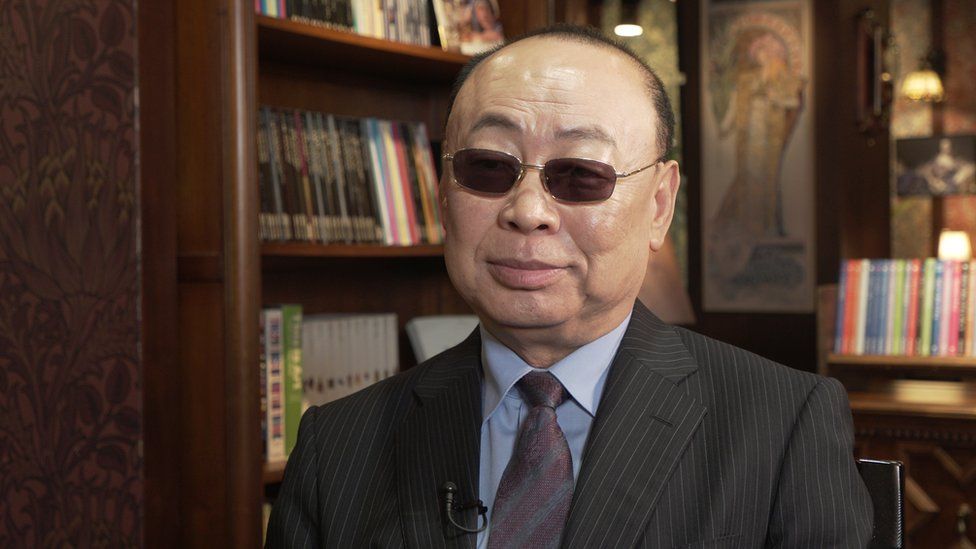
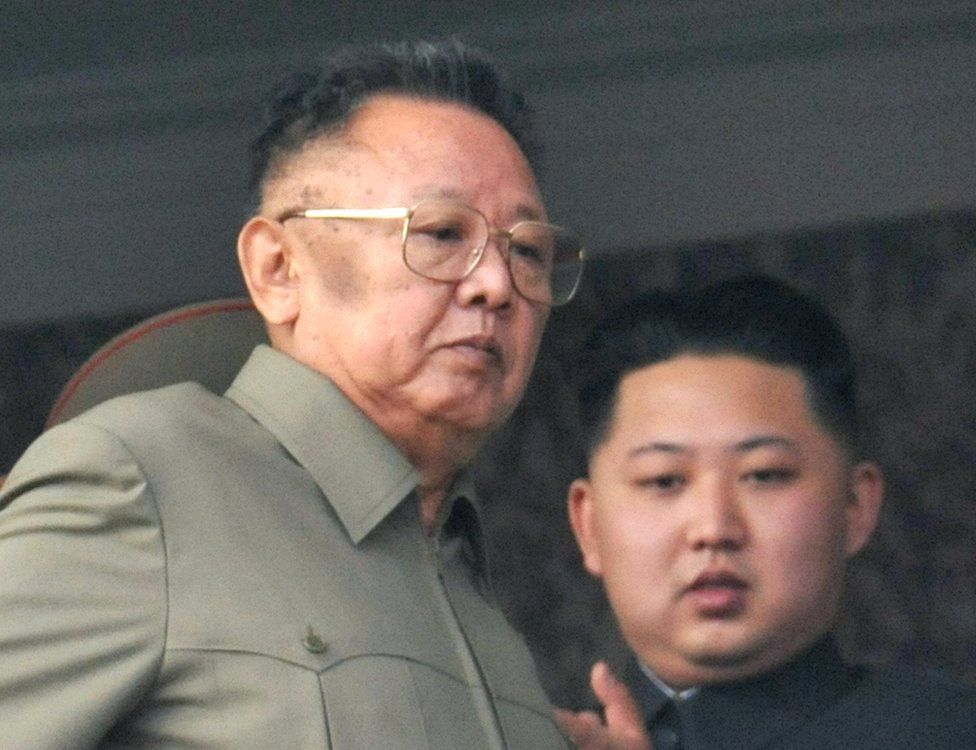
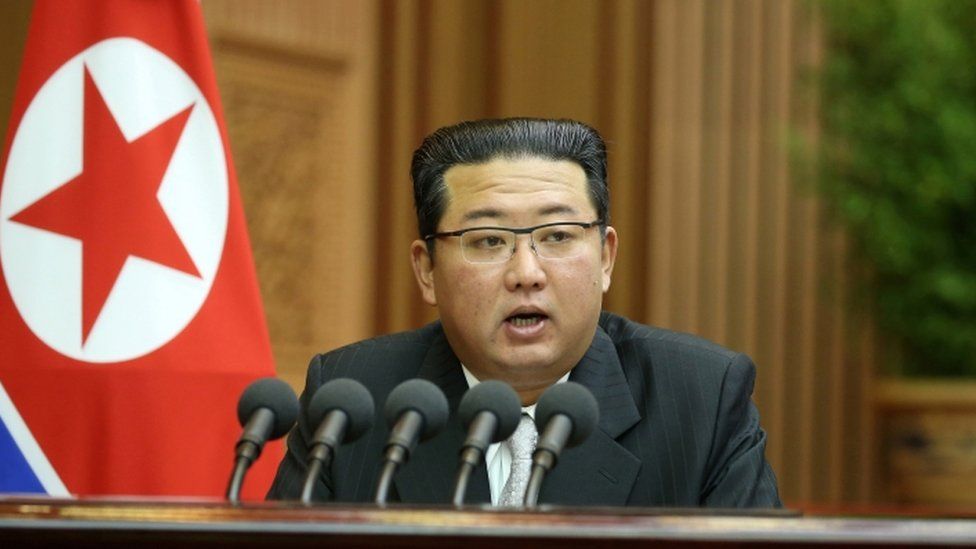
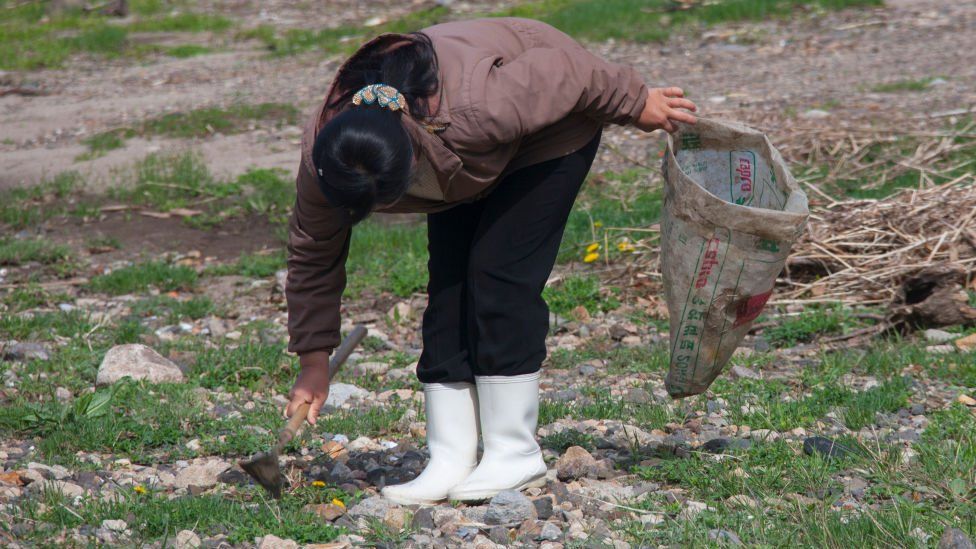
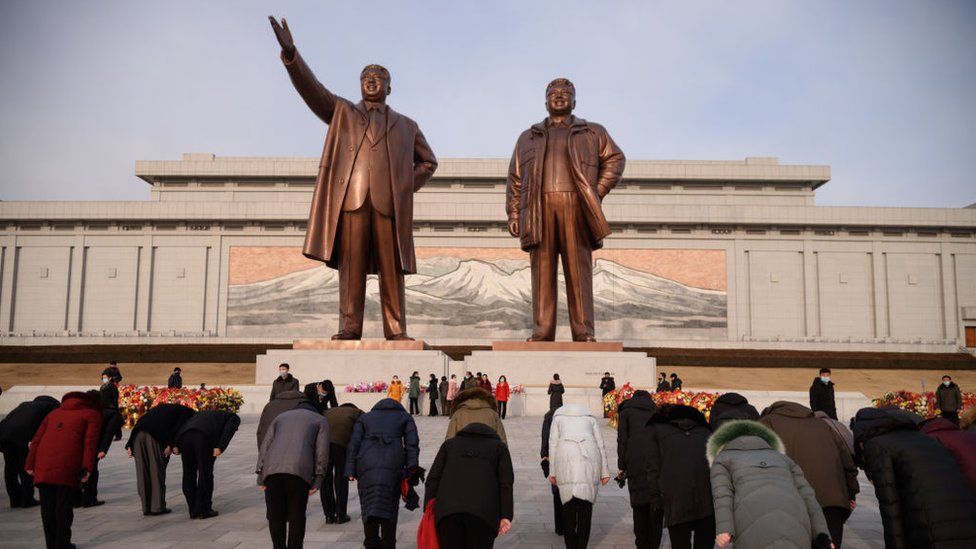
No comments:
Post a Comment